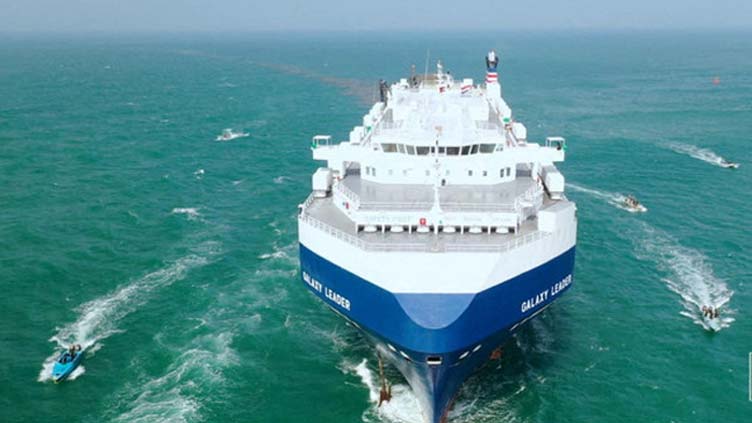India-bound oil tanker hit by missile in Red Sea attack

World
The missile launched from Yemen hit the M/T Pollux on its port side
CAIRO (Reuters) - A Panamanian-flagged tanker carrying crude oil bound for India was struck with a missile in the Red Sea, the U.S. State Department said on Friday.
The missile launched from Yemen hit the M/T Pollux on its port side, according to the State Department.
Earlier on Friday, the United Kingdom Maritime Trade Operations (UKMTO) agency and British maritime security firm Ambrey said a Panama-flagged tanker had reportedly been hit 72 nautical miles (133 km) northwest of the port of Mokha, off Yemen.
"The vessel ... reportedly sustained minor damage. The crew was reported safe and unharmed," Ambrey said.
"This is yet another example of the lawless attacks on international shipping, which continue after numerous joint and international statements calling the Houthis to cease," a State Department spokesperson said.
M/T Pollux embarked from Russia's Black Sea port city of Novorossiysk on Jan. 24 and was due to discharge in Paradip, India, on Feb 28, according to LSEG data. Indian Oil Company has a 300,000 barrels per day (bpd) oil refinery at Paradip, in eastern Odisha state.
The ship is owned by Oceanfront Maritime Co SA and managed by Sea Trade Marine SA, according to LSEG data.
Representatives from those firms did not immediately respond to requests for comment.
Another vessel three nautical miles to the northeast of the M/T Pollux was observed altering course to port, away from the tanker, Ambrey said.
Yemen's Iran-backed Houthis have said they will press on with attacks on Red Sea shipping in solidarity with the Palestinians, as long as Israel continues to commit "crimes" against them.
"Our operations have a big impact on the enemy which constitute a great success and a real triumph," Houthi leader Abdulmalik al-Houthi said in a televised speech on Thursday.
The attacks on ships have disrupted global commerce, stoked fears of inflation and deepened concern the Israel-Hamas war could spread.


